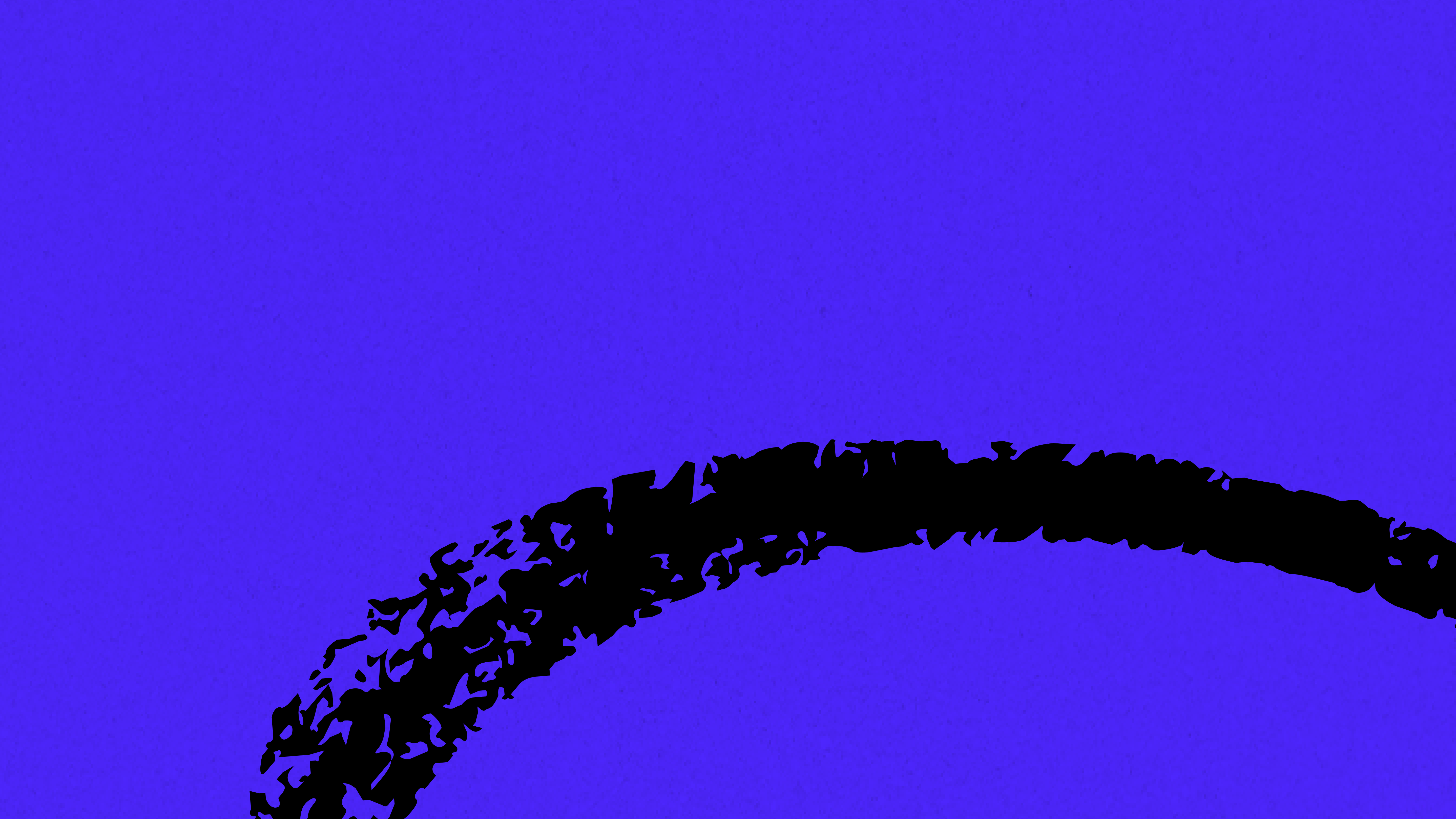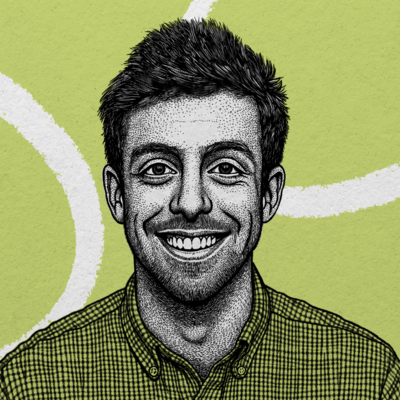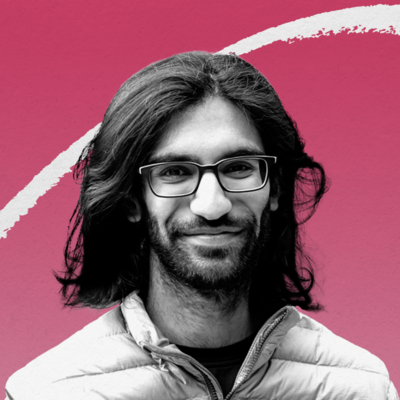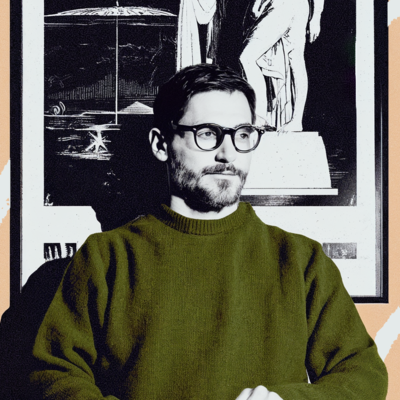
When I was little my grandfather wrote a novel for me.
Or, rather, I started a novel and he finished it for me.
.
It started with short stories.
As a kid, I wrote a lot of them — keeping folders and folders of ruffled lined paper filled with scribbles, or pecking them out on my AlphaSmart. (For those who don’t remember, an AlphaSmart is basically a calculator with a full-sized keyboard attached to it. Ahh the memories.)
But I didn’t want to just write short stories. I wanted to write a novel, and my dream was to write a really long one — something with heft.
I wanted to make it at least 100 pages in length. That was my goal. It seemed impossibly long — even writing a one page story as a 9 year old is a pretty taxing thing to do. But real authors write long books, and I wanted to be a real author so I was going to write a long book too.
I devised a solution.
A hack.
One I believed would help write a book without having to worry about coming up with compelling characters, plot twists, or dialog: on page 1 of my story, I had my character begin counting.
What he was counting is unfortunately lost to time. But I started him counting something in some way or another. It looked something like this:
“He said, ‘1, 2, 3, 4, 5, 6, 7, 8, 9, 10….
The idea was to keep the character counting until the book reached 100 pages in length. Then he would stop counting, I would wrap up my story, and WHAM! I would have a novel.
I would be able to print it at Kinkos, and get it bound in leather or fabric like a real book, and then I would be a real author and maybe I could even sneak it into the library and someone would pick it up to read it.
I started writing this book some time shortly before winter vacation. I would sit at my family iMac and diligently write out each successive number one digit at a time:
“100,025, 100,026, 100,027, 100,028…”
Nowadays I would just write a little script to generate this string of numbers, but as I said, I hadn’t learned to program yet. So I had to do things the old fashioned way.
It was hard work, but I had a goal, and I was determined. When winter vacation rolled around, I had plans to spend most of my time working on my novel.
It turns out, though, that the powers that be don’t view typing out strings of numbers into your computer as a proper way to spend winter break, and so, to my chagrin, my plans were interrupted by a ski vacation.
I went away to a mountain with my dad, my sister, and my grandparents — Pop and Gram. We ended up spending all day on the mountain, which meant that I wasn’t making much progress on my book.
But Pop and Gram didn’t ski — they spent most of the time back at the hotel room, or walking around the town, waiting to see us at mealtimes.
I remember telling Pop about my project, and I remember him being very amused by my 8 year old solution to the problem of novel writing. So he decided to write my novel for me.
Every morning we would leave to ski, and he would sit down at the computer in a sweater and neatly pressed khakis and begin typing:
“1,000,243, 1,000,244, 1,000,245, 1,000,246...”
I remember this very particular swell in my throat — this feeling of fascination, and wonder, and adrenaline-fueled excitement that this was happening.
I remember being so caught up in it that I found it hard to concentrate on skiing. I was so excited to get home and see how much progress he had made that day.
I knew that soon my very first novel would be completed, and it would be a whopping one hundred pages long.
And then I would be a real author, and then, who knows?
It was so real, I could almost see it in my mind. All I had to do was wait.
.
When I’m having trouble seeing I usually pull out Annie Dillard. Pilgrim at Tinker Creek, Chapter 2, to be exact.
It’s a nature book, written about her time living in Tinker Creek in Virginia’s Blue Ridge Mountains. She spends most of the book looking at nature, and describing what’s around her.
“It is still the first week of January, and I’ve got great plans. I’ve been thinking about seeing,” says Annie.
But the seeing she’s talking about isn’t just normal looking. The type of seeing we’re referring to here is less ocular and more oracular. The object of this kind of sight isn’t letters and numbers on a chart, but living itself.
Annie opens the book by telling us about her habit of hiding pennies in the woods.
“When I was six or seven years old, growing up in Pittsburgh, I used to take a precious penny of my own and hide it for someone else to find.
“I would cradle [a penny] at the roots of the sycamore, say, or in a hole left by a chipped-off piece of sidewalk. Then I would take a piece of chalk, and starting at either end of the block, draw huge arrows leading up to the penny from both directions…
“I labeled the arrows: SURPRISE AHEAD or MONEY THIS WAY.
“I was greatly excited, during all this arrow-drawing, at the thought of the first lucky passer-by who would receive in this way, regardless of merit, a free gift from the universe.”
This passage always hits me.
One cent, of course, isn’t much of a gift from the universe. But the reason these pennies have value—the reason they were so important to Annie and are so important to me—is because they are symbolic of something much larger and more important: there are invisible surprises and sources of delight even in the most mundane places.
There are hidden pennies everywhere. Our job is to see them.
.
Annie says: “There are lots of things to see, unwrapped gifts and free surprises. The world is fairly studded and strewn with pennies cast broadside from a generous hand. But — and this is the point — who gets excited by a mere penny?”
Who gets excited by a mere penny? It’s a good question. I certainly don’t a fair percentage of the time.
I’m ambitious.
I want to do big things. And in order to do that, you need to cultivate a healthy grasping, a sense of striving. You’re constantly going over in your mind, What will happen if I do X? If I do Y will I achieve Z?
I’ve noticed this pattern of thought creeping in again as I’ve started to spend more time writing and building this newsletter. It’s exciting. This is growing. Sometimes, I can’t sleep at night because I’m so excited to get to work in the morning. It’s the same feeling I had when I was starting my last company.
But it also blocks off other forms of thinking that I think are just as important.
Ambition often makes it hard to see pennies.
So the question becomes, how do you maintain a healthy sense of ambition, while also stooping to pick the pennies? These things seem to be in conflict. It’s very hard to do.
Well, it turns out that seeing the pennies happens the same way you get to Carnegie Hall:
You need to practice.
The Only Subscription
You Need to
Stay at the
Edge of AI
The essential toolkit for those shaping the future
"This might be the best value you
can get from an AI subscription."
- Jay S.
Join 100,000+ leaders, builders, and innovators

Email address
Already have an account? Sign in
What is included in a subscription?
Daily insights from AI pioneers + early access to powerful AI tools










Comments
Don't have an account? Sign up!